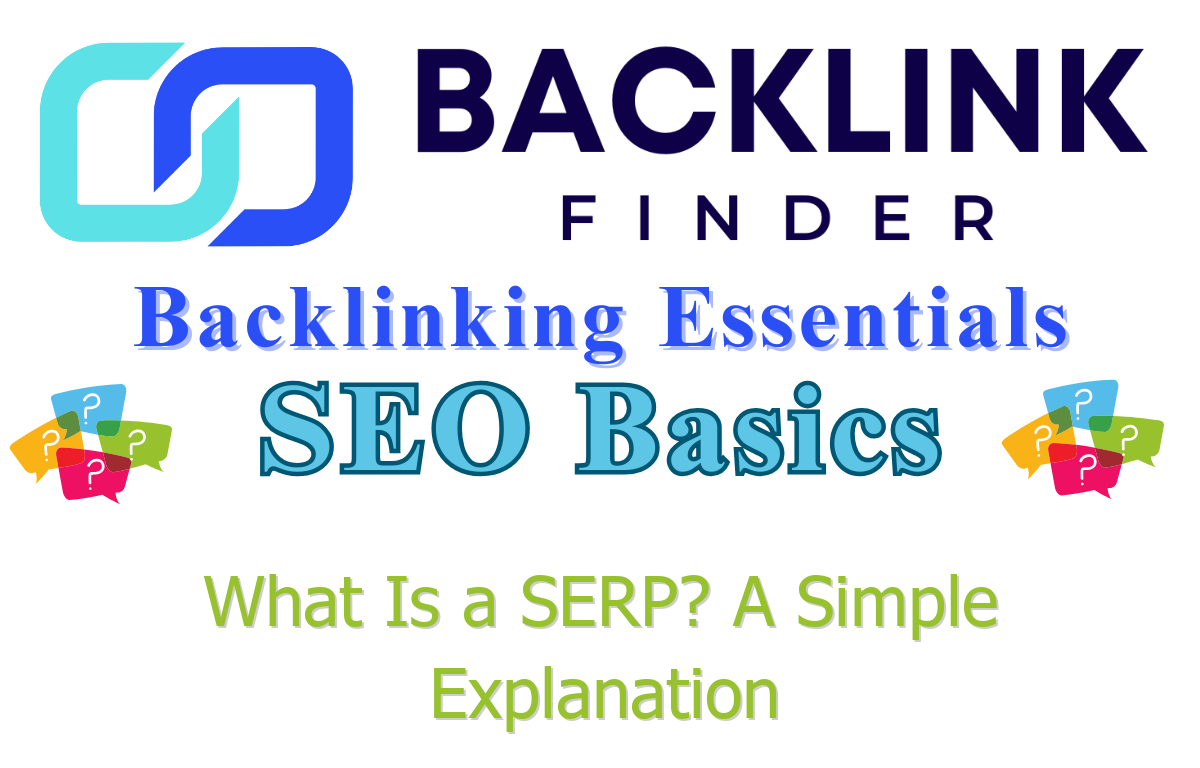What Is a SERP? A Simple Explanation

Ever typed something into Google and stared at that list of results popping up? That’s a SERP—and it’s kind of a big deal in SEO. If you’re new to this world, don’t sweat it. SERP stands for something pretty straightforward, and understanding it can unlock why some sites shine while others hide. This beginner’s guide strips it down to the basics, explaining what a SERP is, what’s on it, and how you can nudge your site higher up the list. Ready? Let’s dive right in!
What Is a SERP?
SERP stands for Search Engine Results Page. It’s the page you see after hitting “search” on Google, Bing, or any search engine—the one packed with links, ads, and maybe a map or two. Each SERP is unique, shaped by what you searched for, where you are, and even your past clicks.
Easy Analogy: Think of a SERP as a menu at your favorite diner. Your search term is the order, and the SERP serves up the best dishes (websites) the chef (Google) thinks you’ll love. Tasty results get the top spots!
Why SERPs Matter
SERPs are where the SEO action happens. They’re your shot to get noticed—or get lost in the crowd. Here’s why they’re a must-know:
- Visibility: Top spots on a SERP grab the most clicks—#1 can snag 30% of them!
- Trust: People trust higher-ranked sites, giving you instant cred.
- Traffic: Ranking well means more visitors, no ad budget required.
Quick Fact: Over 90% of searchers stick to the first SERP. If you’re on page two, it’s like you’re invisible. Ouch!
What’s on a SERP?
SERPs aren’t just a boring list of links. They’re packed with different bits, and knowing them helps you play the game. Here’s what you might see:
- Organic Results: The “natural” links ranked by SEO, like blog posts or homepages.
- Paid Ads: Marked “Ad,” these are sponsored links at the top or bottom.
- Featured Snippets: Quick answers in a box, like a definition or list, pulled from top sites.
- Knowledge Panels: Info boxes (e.g., Wikipedia summaries) for people or places.
- Local Pack: Maps and business listings for “near me” searches.
Example: Search “best coffee shops Seattle,” and you’ll see a local pack with maps, organic cafe blogs, and maybe an ad for a chain. Each piece fights for your click!
How SERPs Work
SERPs are powered by search engine algorithms—fancy math that sorts billions of pages in a flash. Google looks at tons of clues to decide who ranks where, but it boils down to three biggies:
1. Relevance
Your site needs to match what someone’s searching for, plain and simple.
- Keywords: Use terms like “SEO guide” in your content to signal you’re on topic.
- Intent: If they want “how to bake cookies,” give steps, not cookie history.
Example: A post titled “Easy SEO for Beginners” ranks well for that term because it’s laser-focused on the user’s need.
2. Authority
Google trusts sites backed by others, kind of like a popularity contest with brains.
- Backlinks: Links from other sites, like a blog linking to your “SEO Tips,” boost your cred.
- Tool Tip: Backlink Finder, with its 400,000+ marketplace listings, makes it easy to find guest post opportunities, helping you earn links to climb SERPs.
Example: A site with 10 quality backlinks from tech blogs ranks higher than one with none, showing it’s trusted.
3. User Experience
Happy users mean happy Google. SERPs favor sites that keep people coming back.
- Speed: Fast-loading pages win—nobody likes a slowpoke.
- Mobile: Your site better look sharp on phones, or it’s game over.
- Engagement: Content that keeps folks reading (think lists, videos) signals quality.
Example: A blog that loads in 2 seconds and hooks readers for 3 minutes outranks a clunky, boring one every time.
SERPs are your SEO report card. Optimize content, earn links, make users happy—that’s how you land at the top. It’s not magic, just work. https://t.co/Mx9zPqW4kL— Joost de Valk (@jdevalk) June 29, 2022
How to Move Up a SERP
Want your site to climb those results? You don’t need to be a wizard. Try these beginner tricks:
- Write Smart: Create a post like “Top 5 SEO Hacks” with a keyword in the title and text.
- Get Links: Use Backlink Finder to pitch a guest post and earn a backlink.
- Speed Up: Check Google’s PageSpeed Insights and fix slow bits, like big images.
- Watch Clicks: Tweak titles in Google Search Console if they’re not pulling clicks.
Hot Tip: Start with one page. A single optimized post can hit page one in a few months—small steps, big wins!
SERP Myths to Skip
Don’t get tripped up by these:
- Myth: Ads Rule SERPs: Nope—organic results still drive most traffic.
- Myth: Top Spots Are Instant: Rankings take time, often 3–6 months.
- Myth: Only Pros Win: Beginners can rank with solid content and links.
Joost de Valk’s tweet hits it home: SERPs reward effort, not magic.
Further Reading
- Moz: What Is a SERP?
- Ahrefs: Understanding SERPs
- Search Engine Land: Guide to SERPs

